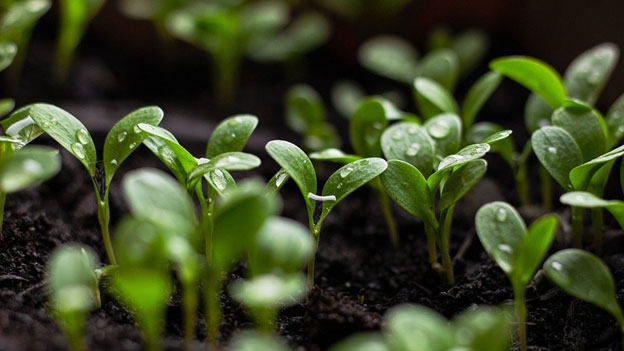Impact of Nano-Fertilizers on Soil Productivity
The Indian agriculture sector is one of the oldest and largest sectors in India, which is currently facing multifold problems due to environmental pollution, leaching and several other issues. World
The Indian agriculture sector is one of the oldest and largest sectors in India, which is currently facing multifold problems due to environmental pollution, leaching and several other issues. World agricultural cropping systems are using a large number of fertilizers, pesticides and herbicides to increase the productivity of land and generate more yield. Although conventional chemical fertilizers increase soil productivity but also create an imbalance in the soil’s mineral content and decrease soil fertility in the long run. To address this issue, several researchers have triggered the importance of nanotechnology to uphold sustainable agriculture by improving plant nutrition, increasing nutrient efficiency and also improving soil fertility. Because of these features, nano-fertilizers can be used as a smart delivery system to provide essential nutrients to plants and act as a potential growth enabler. The plant root system is the main gateway for nutrients, which is more highly porous to nano-fertilizers than conventional chemical fertilizers. Nano-fertilizers, owing to their nano-structured particles, are released very slowly into the soil, which helps in increasing the nutrient-use efficiency and decreases nutrient leaching into groundwater.
Nano-fertilizers help to improve the photosynthetic process and nitrogen metabolism. At the same time, it also increases the rate of seed germination as well as carbohydrate and protein synthesis. Here is the impact of nano-fertilizers on soil productivity.
Reduces Environmental Pollution
Nano-fertilizers are made from organic ingredients like peat, plant wastes etc. and other ingredients like ammonium humate, ammonia, urea etc., that are instrumental in enhancing soil productivity and also reducing environmental pollution as a result. Excessive usage of conventional fertilizers can cause environmental pollution and deplete the nutritional content of the soil in the long run. Nano-fertilizers help in improving the quality of underground water and in the reduction of global warming. Nano-fertilizers are one of the most sustainable solutions for plant nutrition and are proven to increase soil productivity against conventional chemical fertilizers.
Easy Penetration Through the Plant’s Cell Wall
Nano-fertilizers are the result of nanotechnology, which are ultra-small particles that offer higher surface mass ratios and help in the balanced delivery of nutrients to plants. Nano-fertilizers are encapsulated with nano-particles, which means they have greater absorption capacity and nutrient use efficiency compared to their counterparts. Due to nano fertilizers nano-size, the fertilizer gets easily absorbed by plants more effectively when sprayed on the leaves. Upon spraying, nano-fertilizer reaches the plant parts where nitrogen is required and releases the nutrients in a balanced manner.
Increased Income of Farmers
Due to higher crop yield, a better quality of crop production and a reduction in input cost, nano-fertilizers help in increasing the income of the farmers compared to the traditional ways. Nano-fertilizers are a revolutionary alternative to their counterparts due to their low crop cycle period property. This helps in increasing the crop yield, which helps in increasing the farmers’ income in return.
Better Quality Yield
Nano-fertilizers are high in terms of NPK content, namely Nitrogen, Phosphorus and Potassium, which help in producing better quality yield which is safe for consumption. Due to the growing population and increased demand for better yield, farmers are incorporating excessive usage of chemical fertilizers, pesticides and herbicides which destroys farm productivity and yield in the long run. Nano-fertilizers are a safer alternative to conventional chemical fertilizers and help in increasing soil productivity along with improving the yield of the production.
Nano-fertilizers are one of the significantly used sustainable fertilizers that have received tremendous attention from farmers due to their unique properties. Nano-fertilizers also help in the fixation of nutrients to the plants and also protects the crop from fungal and bacterial infection. Nano-fertilizers play a crucial role in supporting plant cultivation and improving yield, both quantitatively and quantitatively.
agricultural cropping systems are using a large number of fertilizers, pesticides and herbicides to increase the productivity of land and generate more yield. Although conventional chemical fertilizers increase soil productivity but also create an imbalance in the soil’s mineral content and decrease soil fertility in the long run. To address this issue, several researchers have triggered the importance of nanotechnology to uphold sustainable agriculture by improving plant nutrition, increasing nutrient efficiency and also improving soil fertility. Because of these features,
nano-fertilizers can be used as a smart delivery system to provide essential nutrients to plants and act as a potential growth enabler. The plant root system is the main gatewa



